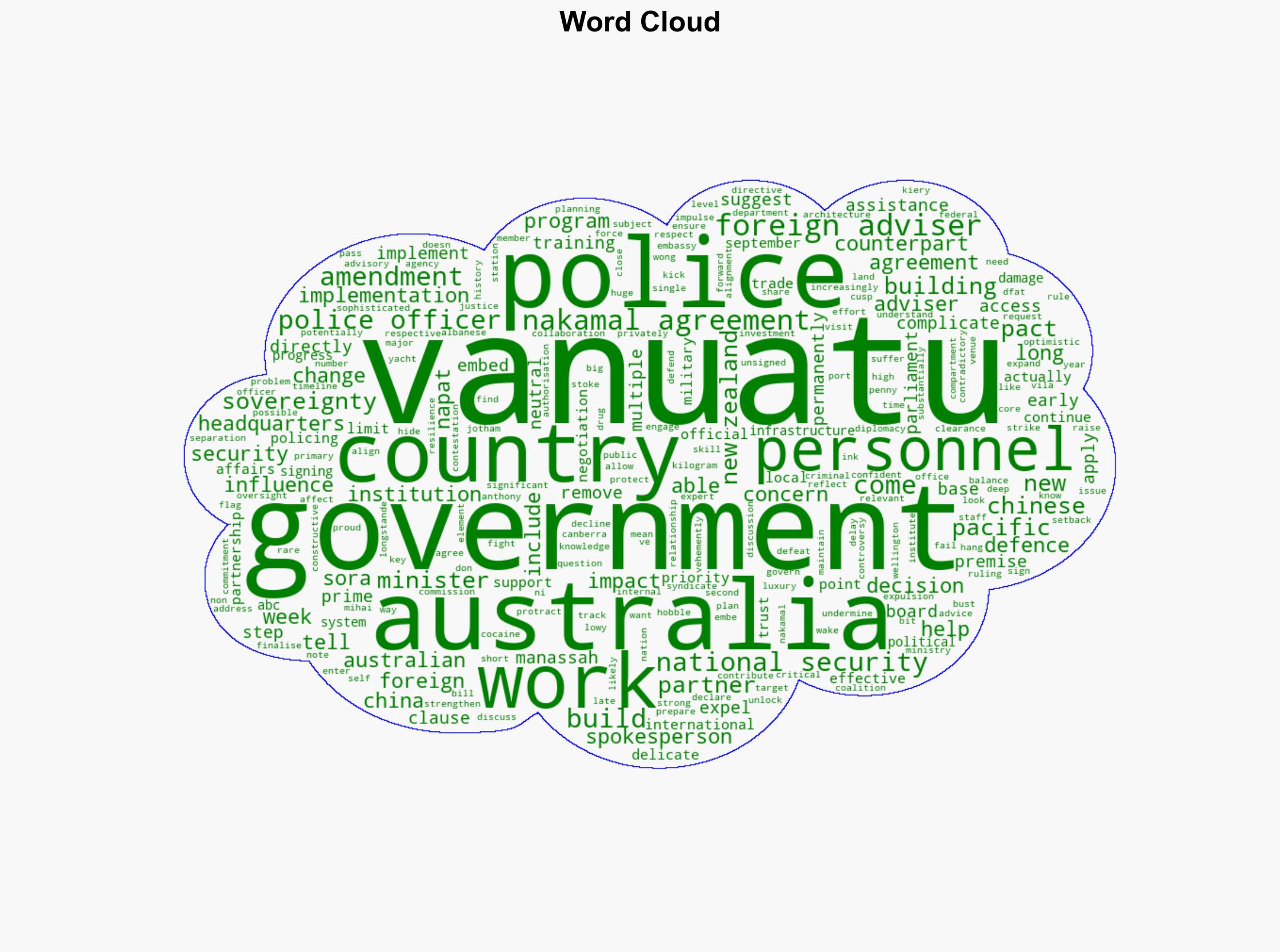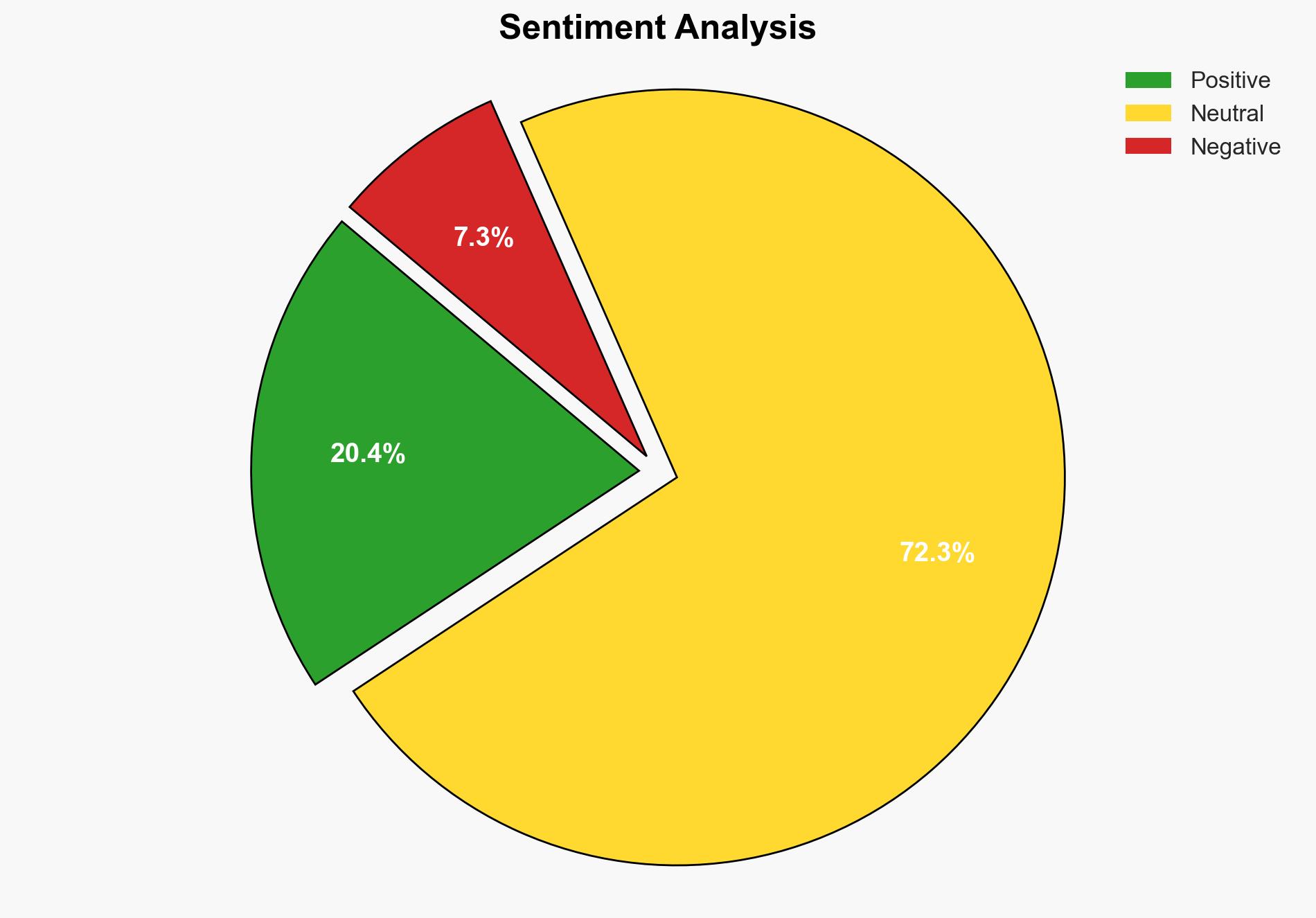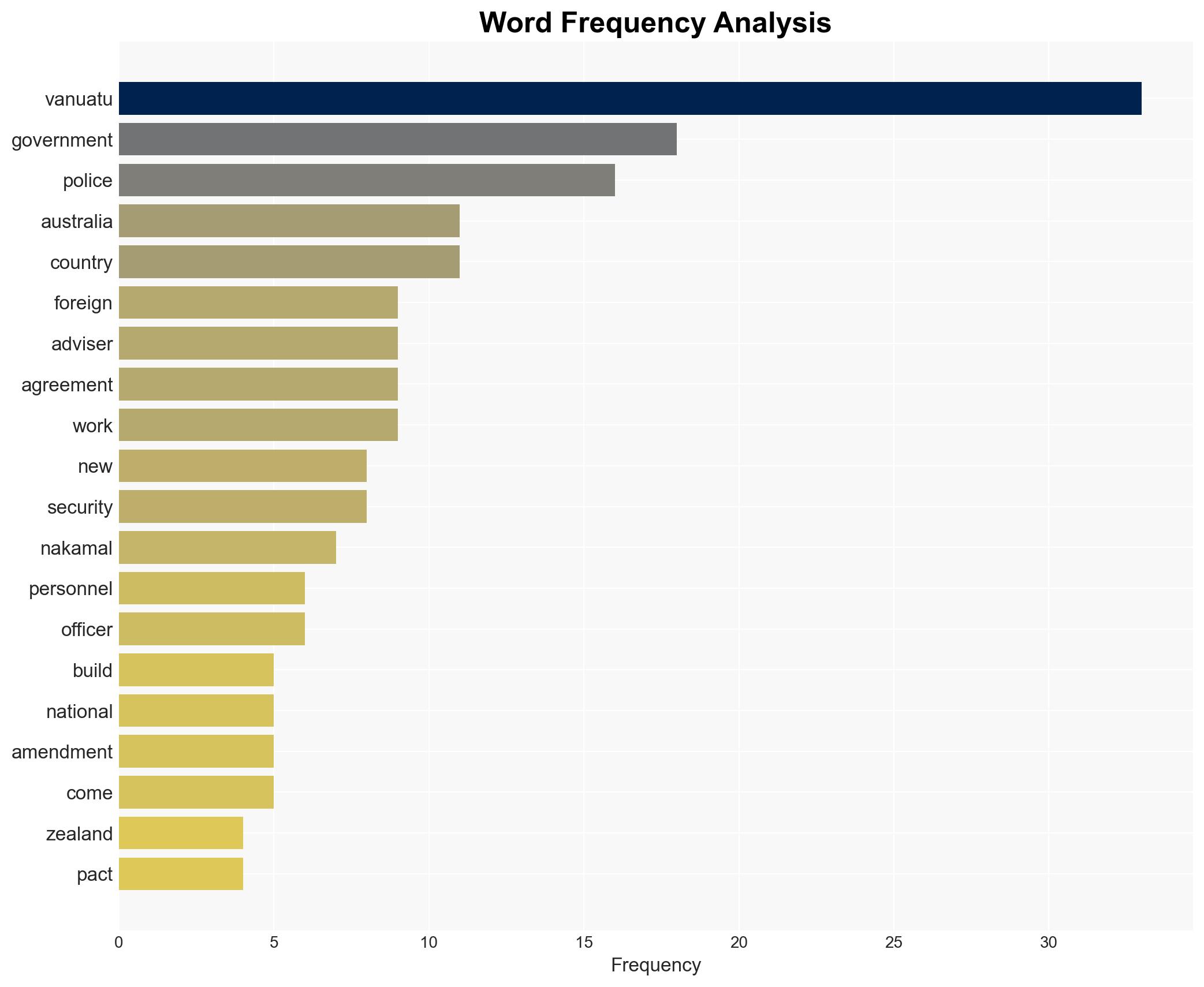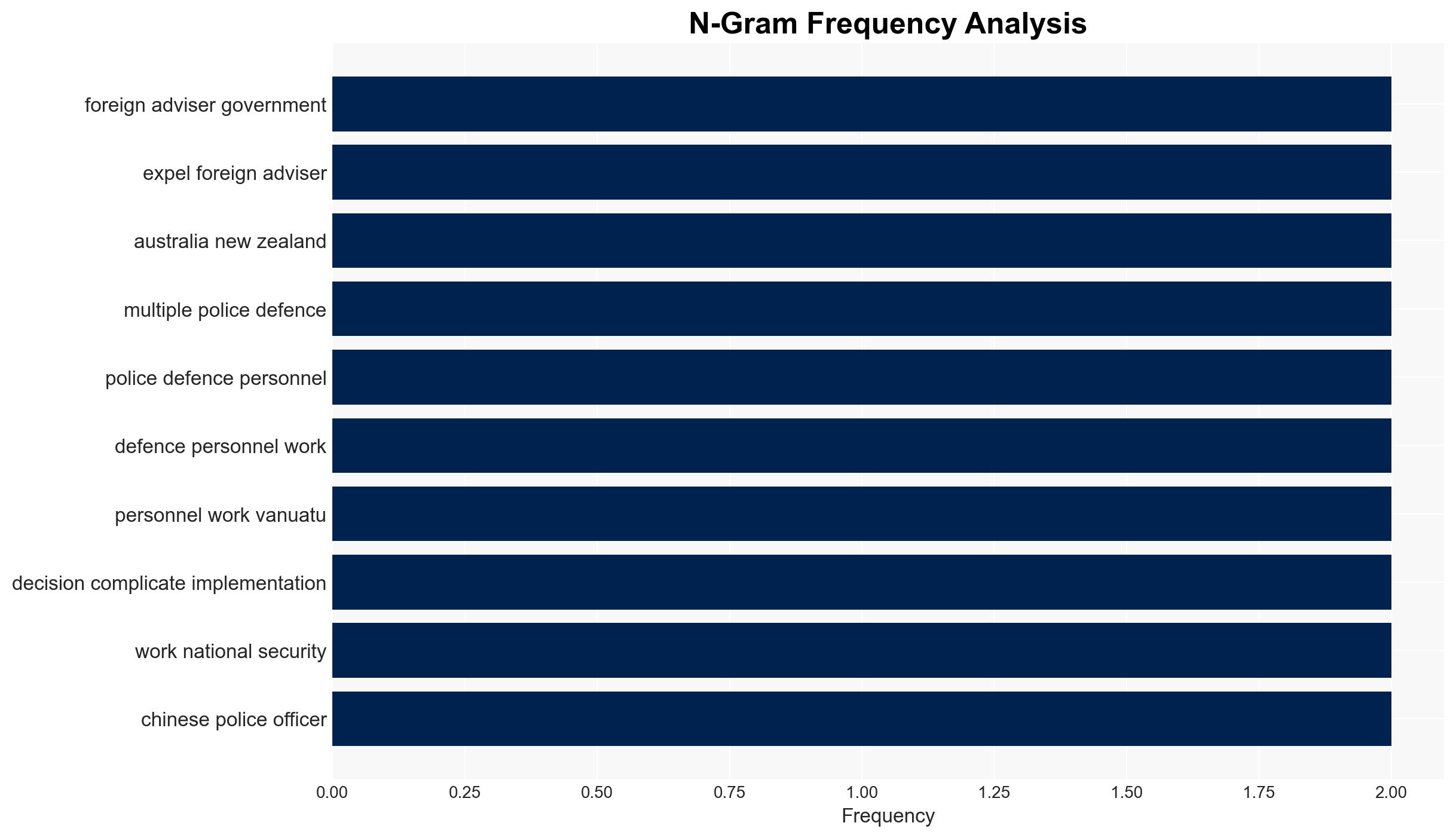Vanuatu expels Australian NZ advisors to stop ‘outside influence’ – ABC News (AU)
Published on: 2025-11-14
AI-powered OSINT brief from verified open sources. Automated NLP signal extraction with human verification. See our Methodology and Why WorldWideWatchers.
Intelligence Report: Vanuatu expels Australian NZ advisors to stop ‘outside influence’ – ABC News (AU)
1. BLUF (Bottom Line Up Front)
The expulsion of Australian and New Zealand advisors by Vanuatu is likely a strategic move to assert sovereignty and reduce perceived foreign influence, potentially influenced by increasing Chinese presence. Confidence Level: Moderate. Recommended action: Engage diplomatically with Vanuatu to address sovereignty concerns while ensuring continued cooperation on security matters.
2. Competing Hypotheses
Hypothesis 1: Vanuatu’s expulsion of advisors is primarily driven by a desire to assert national sovereignty and reduce foreign influence, particularly from Australia and New Zealand, in response to domestic political pressures and a shift towards a more neutral or diversified foreign policy.
Hypothesis 2: The expulsion is influenced by external pressures, particularly from China, as Vanuatu seeks to balance relationships and potentially increase Chinese influence in its national security architecture.
Assessment: Hypothesis 1 is more likely given the explicit statements from Vanuatu’s Prime Minister and the legislative amendments emphasizing sovereignty. However, the presence of Chinese police training programs suggests elements of Hypothesis 2 cannot be dismissed.
3. Key Assumptions and Red Flags
Assumptions: Vanuatu’s actions are assumed to be primarily sovereign decisions rather than externally coerced. The legislative changes are assumed to reflect genuine policy shifts rather than temporary political maneuvers.
Red Flags: Increased Chinese presence in Vanuatu’s security sector could indicate strategic shifts. Lack of transparency in Vanuatu’s decision-making process raises concerns about potential external influence.
Deception Indicators: Public statements may downplay external influences to maintain a facade of neutrality.
4. Implications and Strategic Risks
The expulsion could strain Vanuatu’s relations with Australia and New Zealand, potentially impacting regional security cooperation. A shift towards Chinese influence may alter the strategic balance in the Pacific, affecting geopolitical alignments. There is a risk of increased vulnerability to international criminal syndicates if security assistance is reduced.
5. Recommendations and Outlook
- Engage in diplomatic dialogue with Vanuatu to address sovereignty concerns while emphasizing the benefits of continued security cooperation.
- Monitor Chinese activities in Vanuatu to assess shifts in influence and potential impacts on regional security dynamics.
- Best-case scenario: Vanuatu maintains balanced foreign relations, allowing for continued collaboration with Australia and New Zealand.
- Worst-case scenario: Vanuatu aligns more closely with China, reducing Western influence and altering regional security dynamics.
- Most-likely scenario: Vanuatu seeks to balance relations, maintaining some level of cooperation with all parties while asserting sovereignty.
6. Key Individuals and Entities
Prime Minister Jotham Napat, Vanuatu Government Spokesperson Kiery Manassah.
7. Thematic Tags
National Security Threats
Structured Analytic Techniques Applied
- Cognitive Bias Stress Test: Expose and correct potential biases in assessments through red-teaming and structured challenge.
- Bayesian Scenario Modeling: Use probabilistic forecasting for conflict trajectories or escalation likelihood.
- Network Influence Mapping: Map relationships between state and non-state actors for impact estimation.
- Narrative Pattern Analysis: Deconstruct and track propaganda or influence narratives.
Explore more:
National Security Threats Briefs ·
Daily Summary ·
Methodology





